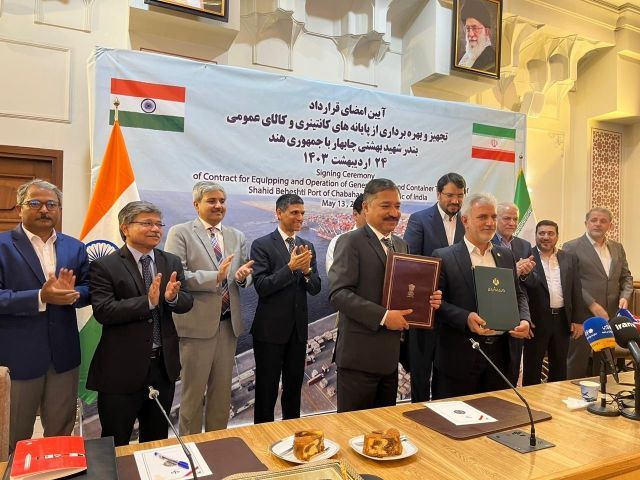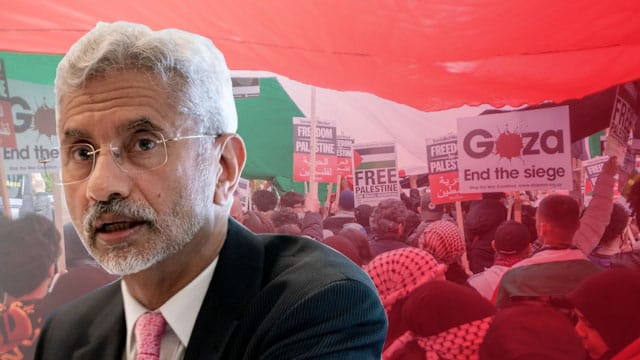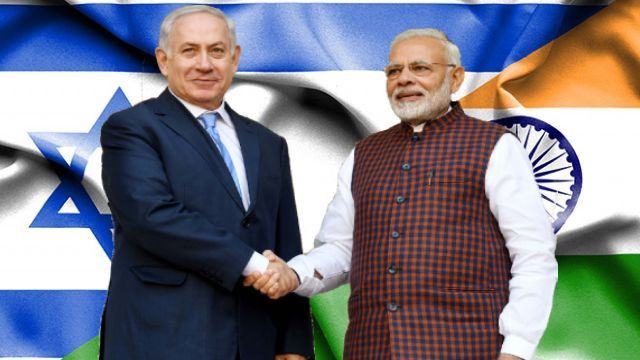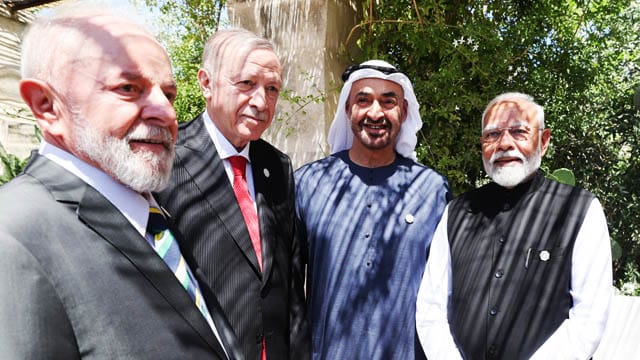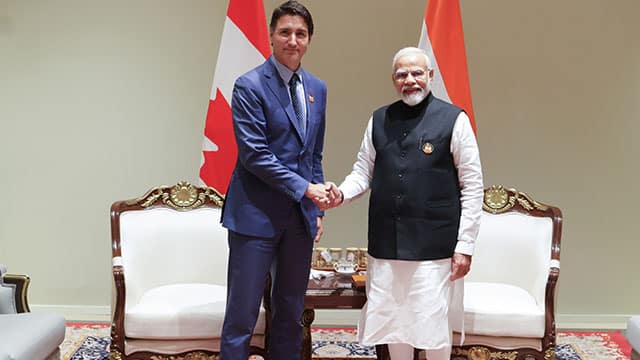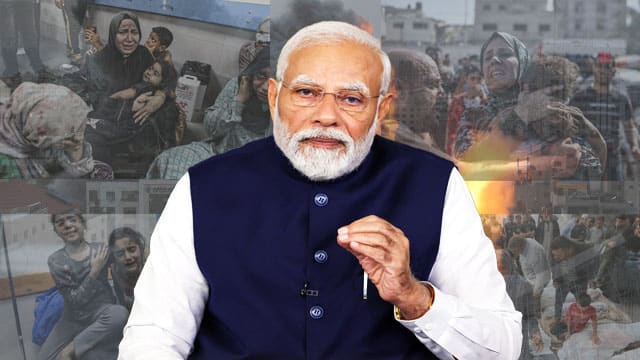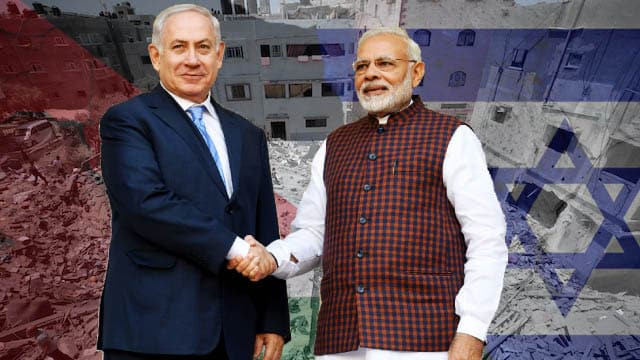New Delhi has signed a deal with Iran on Monday to run the Chabahar Port for the next ten years. This is a significant move by the Indian government amid sanctions imposed on Tehran by the US, with which New Delhi has been strengthening its ties over the years.
“The long-term bilateral contract on Chabahar Port Operation was signed between Indian Ports Global Limited (IPGL) of India and the Port & Maritime Organisation (PMO) of Iran, enabling operation of Shahid-Beheshti in Chabahar Port Development Project for a period of 10 years,” the official statement said.
India’s Shipping Minister Sarbanand Sonwal was present during the signing of the agreement.
Ministry of External Affairs spokesperson Randhir Jaiswal tweeted, “Minister Sarbanand Sonwal witnessed the signing of the long-term contract for the operation of the Shahid Beheshti Port in Chabahar, between India Ports Global Ltd. & Ports and Maritime organisation of Iran (sic)”.
The Chabahar Port agreement is the first of its kind of an agreement for New Delhi through which it’s taking over the management of an overseas port.
Chabahar Port being developed by India on the southeastern coast of Iran along the Gulf of Oman is a way to bypass the port of Karachi, Pakistan which is the main trade partner of Afghanistan.
The port in the Gulf of Oman is 550 nautical miles from Kandla Port in Gujarat and 786 nautical miles from Mumbai Port.
India plans to use this port to connect it with the International North-South Transport Corridor, which will help establish a direct route to Russia through Central Asian countries bypassing Pakistan.
The development is seen as New Delhi’s move against Pakistan’s Gwadar Port, which has been developed as a key link point for China’s Belt-Road Initiative. While the Chabahar Port is only 70km from Pakistan’s Gwadar, the former is considered safer than the latter, which is situated in the insurgency-hit Baluchistan province.
In 2016, a treaty was signed between Iran, India and Afghanistan to develop the Shahid Beheshti terminal during Prime Minister Narendra Modi’s official trip to Iran. For Afghanistan, which faced a virtual trade blockade from Pakistan, the Chabahar Port provided a lucrative alternative to the Karachi Port.
Mr Sonowal had earlier said that the port links the rich Central Asian region with the South Asian markets, plays a major role in trade and economic collaborations, and connects the people of the two geographies. The transport and transit potential within this region would be strengthened and their logistic network would be developed through the Chabahar Port, the minister highlighted.
The minister had also mentioned that Chabahar Port would be the initiation of a joint plan to reach a goal of building a regional and international transport route. The objective is also to create universally accepted international norms, good governance, the rule of law and equality at the port.
During the last BRICS summit, Mr Modi had also highlighted the importance of Chabahar, which is now considered a cornerstone in the India-Iran relationship.
Nevertheless, the development of the port slowed down because of the US sanctions against Iran.
Commenting on the India-Iran deal over Chabahar Port, the US reiterated the continuity of its sanctions and issued a veiled threat to India.
“We’re aware of these reports that Iran and India have signed a deal concerning the Chabahar Port. I will let the government of India speak to its own foreign policy goals vis-a-vis the Chabahar port as well as its bilateral relationship with Iran,” State Department Deputy Spokesperson Vedant Patel told the press on Monday.
“I will just say, as it relates to the United States, US sanctions on Iran remain in place and we’ll continue to enforce them,” Mr Patel told the press regarding the validity of the sanctions on Washington’s regional foe.
“You’ve heard us say this in several instances, that any entity, anyone considering business deals with Iran, they need to be aware of the potential risk that they are opening themselves up to and the potential risk of sanctions,” Mr Patel emphasised, without directly condemning New Delhi.
As the US has been relying more on India, which has become a crucial military ally of Washington DC in the Indo-Pacific war theatre, it’s to be seen how New Delhi can navigate the complex geopolitical web concerning the sanctions on Iran.
As a literature graduate with a passion for storytelling, Diya is now expanding her expertise through postgraduate studies in journalism and mass communication. Her interests span politics, society, culture, fashion, and entertainment, where she seeks to craft impactful narratives.

